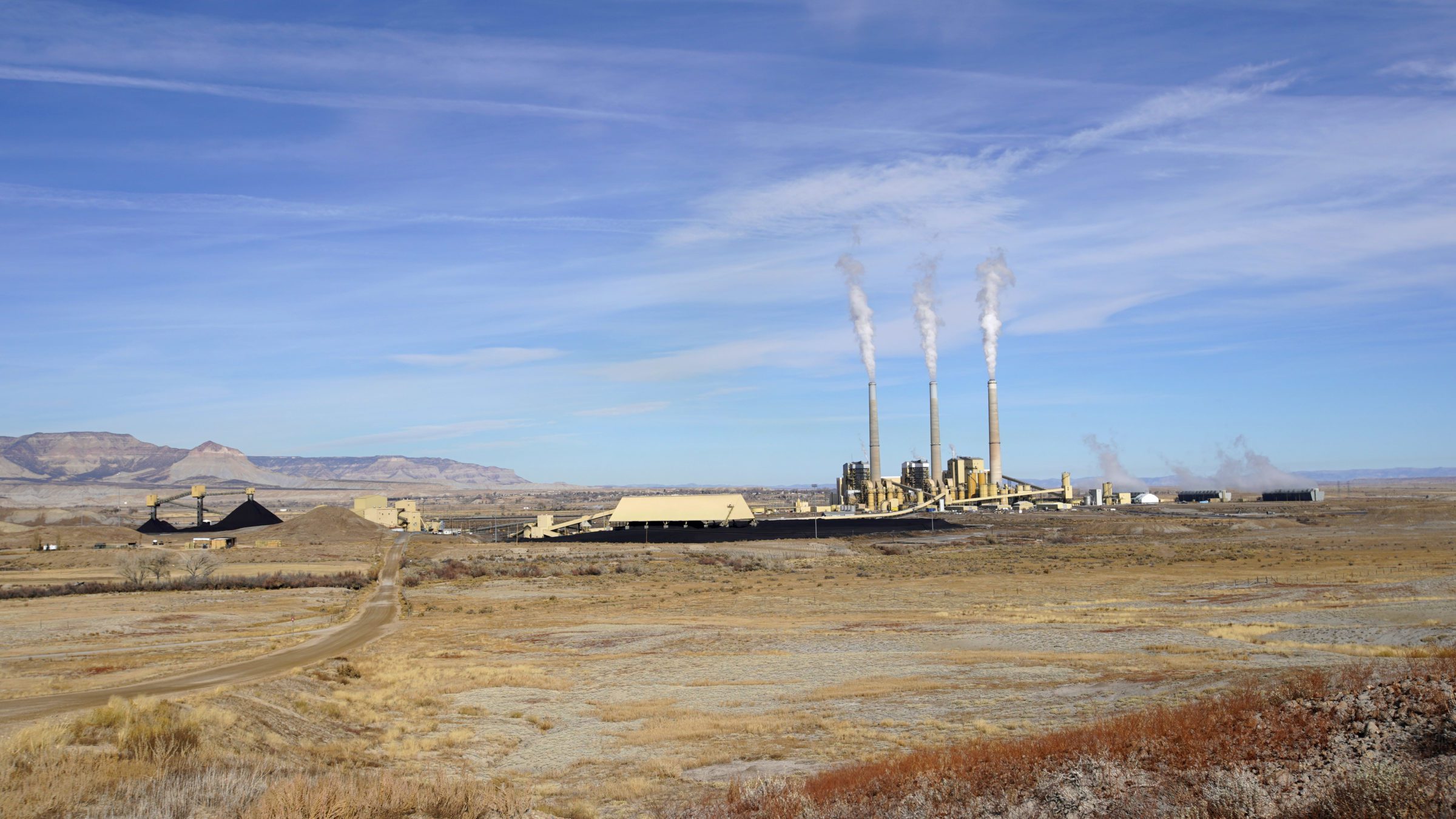Next week, the Supreme Court will hear oral arguments in West Virginia v. Environmental Protection Agency, a case about whether Congress authorized the EPA to take steps necessary to curb greenhouse gas emissions. Yet also at stake here is an issue that is, incredibly, perhaps even more consequential: whether Congress can empower the executive branch to meaningfully tackle problems like climate change in the first place.
A little background: Back in 2015, the EPA used its power under the Clean Air Act to issue a regulation known as the Clean Power Plan, which set national limits on the amount of carbon pollution that gas and coal power plants could lawfully emit. In an unusual move, however, the U.S. Supreme Court in February 2016 blocked the Obama administration’s regulation from taking effect before the lower court could even rule on it. The vote was 5-4, with all five conservatives in the majority; Justice Antonin Scalia died four days later.
Then, under President Donald Trump, the EPA rescinded the Clean Power Plan and replaced it with the Affordable Clean Energy rule—a comically weak measure that some experts believed would have made greenhouse gas emissions worse. Last year, a group of states including New York and California successfully argued to a federal appeals court that ACE should be struck down. The D.C. Circuit Court of Appeals agreed, and took the additional step of invalidating the Trump administration’s repeal of the Clean Power Plan, too.
Rather than revive the Clean Power Plan, the Biden administration attempted to sidestep this conflict, stating it would create a new, distinct rule. In the realm of reality, this duel between the Clean Power Plan and the Affordable Clean Energy is moot now. But that didn’t stop West Virginia from asking the Supreme Court for review, which, astonishingly, the Court granted. It seems that Republican-controlled states and their fossil fuel allies simply cannot pass up an opportunity to dismantle the EPA’s authority to rein in climate change.
The legality of now-irrelevant environmental regulations is really a sideshow for the main event: The EPA is part of the “administrative state,” which is composed of the executive agencies that implement the laws Congress passes. (The expansion of executive agencies began during the New Deal, when President Franklin Roosevelt utilized them to carry out the monumental task of rebuilding the country’s economy after the Great Depression.) The need for agencies stems from the complexity of carrying out the general laws that Congress passes. Congress can agree that it is prudent to establish limits on “common and widespread pollutants based on the latest science,” as it did with the Clean Air Act. But it is agency experts housed in the executive branch, who understand the science of climate change, that decide the specific pollutants to regulate and the limits to set on them.

Something Neil Gorsuch does not think requires regulation (Photo by George Frey/AFP via Getty Images)
Rolling back the administrative state has long been a pet project of the conservative legal movement, which would much rather live in a world of corporate power unencumbered by pesky health, safety, and sustainability regulations. Senators Richard Blumenthal, Sheldon Whitehouse, Bernie Sanders and Elizabeth Warren submitted an amicus brief in West Virginia urging the Court to dismiss the case for this reason, calling it the culmination of an industry-led decades-long effort to dismantle the administrative state through the courts.
Corporations resentful of government intervention are “fabricating legal theories into deregulatory weapons,” the senators wrote. “The industry-funded and industry-promoted arguments made here…would empower and enrich polluting corporations at the expense of public health, welfare, and the environment.”
Unfortunately for Whitehouse and company, the conservative deregulatory agenda has some powerful allies on the Court. Likely to play a starring role in West Virginia is the nondelegation doctrine, the idea that the Constitution sets out strict limits on what Congress can delegate to the executive branch. A recent examination of Founding-era practices by University of Michigan Law School professors Julian Davis Mortenson and Nicholas Bagley concluded that the nondelegation doctrine “didn’t exist at the founding,” and is a “fable that originalists tell themselves about how enlightened people must have thought about the Constitution.”
Nevertheless, the conservative justices are big fans. Justice Neil Gorsuch, for example, has voiced support for an extreme version of the principle that would place sharp limits on Congress’s ability to delegate its authority. Concurring with the Court’s decision to pause the OSHA administration’s vaccine-or-test rule last month, Gorsuch praised the nondelegation doctrine as one that “ensures democratic accountability by preventing Congress from intentionally delegating its legislative powers to unelected officials.”
A related judge-made rule, the “major questions doctrine,” requires Congress to “speak clearly” if it intends to give agencies sweeping powers over questions of “vast economic and political significance.” You can think of this as nondelegation lite—a rule that requires judges to intervene in policy areas they deem too significant for executive agencies to handle. Together, Gorsuch wrote, these two doctrines “prevent government by bureaucracy supplanting government by the people.”
The Court telling Congress to pass environmental legislation is tantamount to guaranteeing there will be no environmental legislation—which is, of course, exactly what the conservatives want.
The legal justification offered by advocates of dismantling the administrative state is that Congress, as the most democratic branch, should oversee every aspect of the lawmaking process. Quoting a 1980 opinion written by Justice William Rehnquist its petition for certiorari, West Virginia argued that “the people’s representatives must make ‘fundamental policy decisions’ —that is, ‘the hard choices,’ as opposed to ‘filling in of the blanks.’” But if the Court sidelines the EPA, Congress, a body that includes more than 100 elected officials who deny the scientific consensus around climate change, will be in charge of reducing greenhouse gas emissions and slowing climate change. The Court telling Congress to pass environmental legislation is tantamount to guaranteeing there will be no environmental legislation—which is, of course, exactly what the conservatives want.
A victory for West Virginia would be the opposite of democratic accountability, because it would place decision-making power that would otherwise be housed in the EPA in the hands of the least democratic entity: the Supreme Court. Executive agencies are at least beholden to the president, a nationally-elected official. But the judiciary is composed of life-tenured appointees who are intentionally insulated from political pressure, which is why fossil fuel industries are trying to call in a favor at Chief Justice John Roberts’s pro-business Court.
What makes this case all the more egregious is that, with both the Clean Power Plan and the Affordable Clean Energy rule in the recycle bin, the “problem” is purely hypothetical. Despite many conservative justices’ public posturing about how the justices are independent non-partisan decision makers, their decision to hear this case shows the extremity of their judicial activism. Nine unelected judges will decide whether to dismantle the administrative state based on the pretense that Congress instructing the executive to implement the laws it passes is anti-democratic. The planet will likely get a little warmer as a result.

